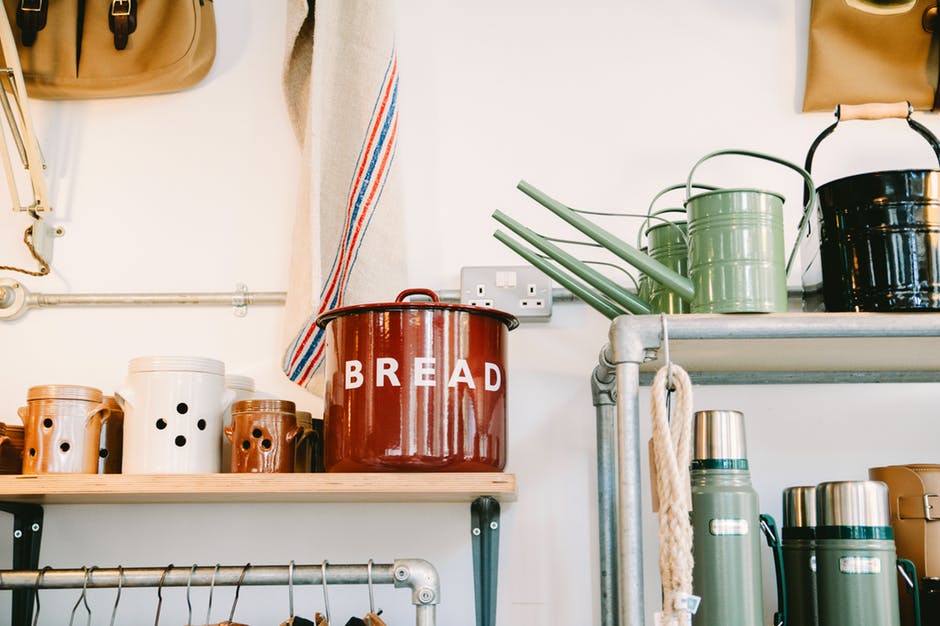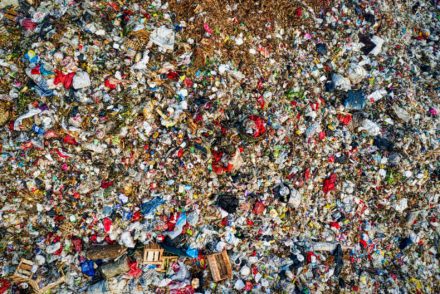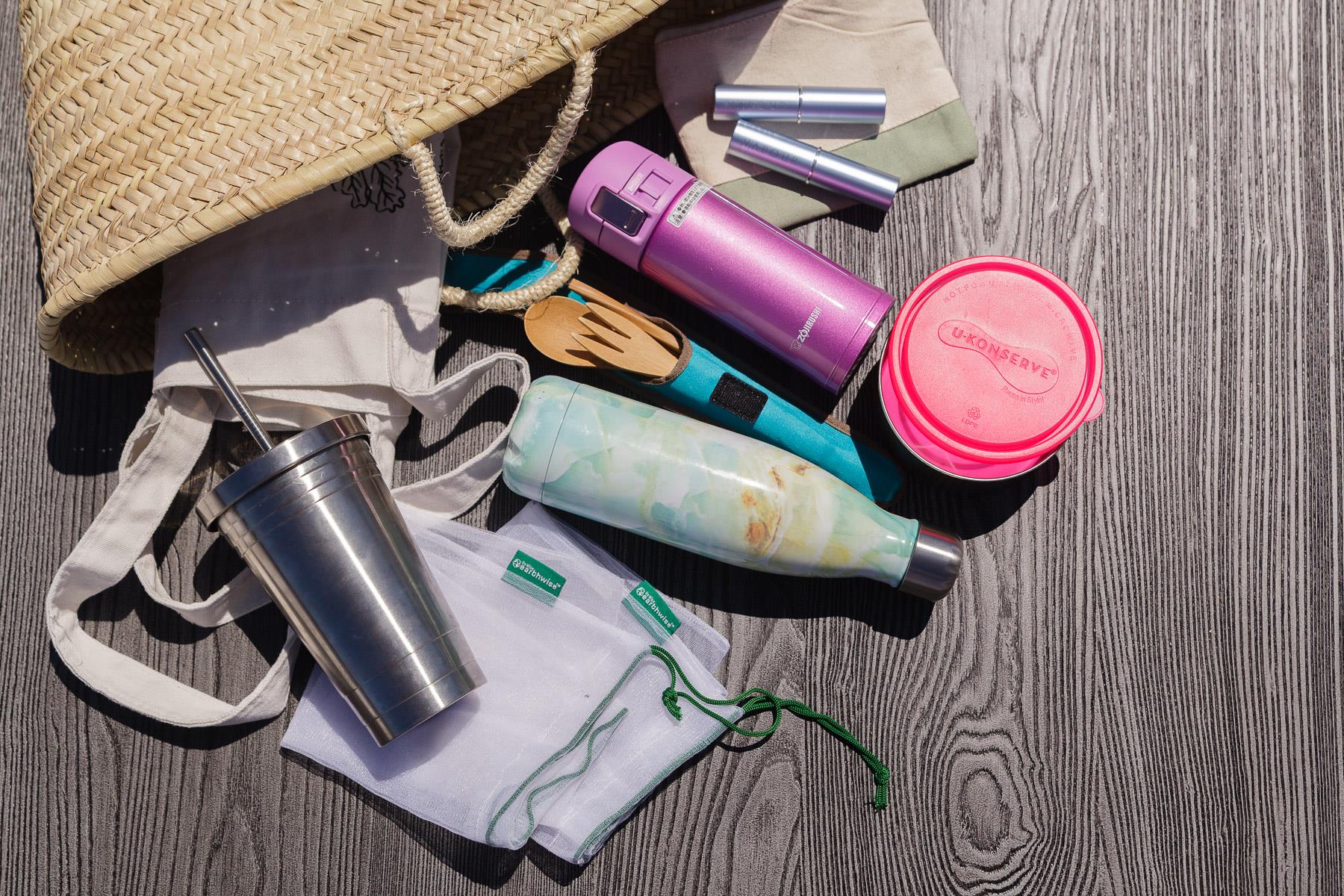Plastic is one of the most prominent pollutants of our earth and ocean, yet each year, plastic consumption is increasing. According to Project Drawdown, “We estimate the total production of plastics to grow from 311 million tons in 2014 to at least 792 million tons by 2050.”
Plastic has an undoubtedly convenient but alarming presence in our daily lives. We’re surrounded by plastic. Think about every piece you encounter in a single day: grocery bags, food containers, coffee cup lids, drink bottles — the list goes on. It is estimated that half of the nearly 300 million tons of plastic produced each year is used for single-use items. That means an item is used once (with the average lifespan of 1.5 hours) and then thrown away.
Mindless plastic consumption is a current and increasing threat to biodiversity. While changes made at the governmental level would have the most timely impact, right now, it’s up to the consumer to make conscious choices that support sustainability. Below are a few simple tips to reduce plastic pollution.
Refuse single use plastics wherever and whenever you can.
- Avoid produce that’s wrapped in plastic. Plastic packaging can, of course, help keep food hygienic and prolong shelf-life. It makes it more convenient for the consumer to grab and go. But the costs of servicing that lifestyle are high, for people as well as the environment. Instead choose loose, seasonal produce.
- When shopping for produce or bulk items, come equipped with reusable produce bags instead of using the plastic ones provided by most grocers.
- Forego drinking bottled water whenever possible. According to the Container Recycling Institute, in the United States alone, more than 60 million plastic water bottles are thrown away each day. However, only a small percentage actually make it to a proper recycling facility. Make it a habit to always have a reusable bottle with you.
- Just say no to plastic straws. According to Strawless Ocean, Americans use 500 million plastic straws every day. Many of those straws end up in the ocean polluting the water and affecting marine life. Keeping a stainless steel straw on hand prevent the need for harmful, single-use plastics.
Reduce your plastic footprint by cutting back on goods that contain excessive plastic packaging.
- Whenever possible, buy goods in loose form or packaged sustainably. For example, companies like Elate Cosmetics use biodegradable seed paper to package the powder products. They also give consumers the option to buy reusable compacts and palettes. When the product is gone, you simply purchase a refill instead of a buying another product with casing.
- If you have the option to purchase a product or appliance made out of plastic or from stainless steel or ceramic, choose the latter.
Invest in reusable items made from sustainable materials.
- Whether you’re at the grocery store or shopping for clothes, always have a few reusable totes with you.
- When you’re on-the-go, always keep your zero waste essentials with you. Include a reusable travel tumbler and water bottle, a container for leftovers, reusable cutlery, and a stainless steel straw.
- Instead of plastic, opt for products made with sustainable materials like metal, stainless steel, copper, bamboo, cork, linen, organic cotton, plant fibers, stoneware, ceramic and clay.
Recycle anything that you can’t reduce, reuse or refuse.
- Get familiar with your local recycling guidelines and follow them. If your city offers curbside composting, take advantage of this positive cyclical process.
- Pay attention to the full lifecycle of the items you bring into your home, from sourcing through manufacturing and disposal. Remember the quote, “Buy less, choose well, make it last.”
Resources
Books:
- Bottled and Sold: The Story Behind Our Obsession With Bottled Water by Peter H. Gleick
- Cradle To Cradle: Remaking the Way We Make Things by Michael Braungart and William McDonough
- Garbology: Our Dirty Love Affair With Trash by Edward Humes
- Plastic: A Toxic Love Story by Susan Freinkel
Film:
- A Plastic Ocean, directed by Craig Leeson
- Tapped, directed by Jason Lindsey
- Plastic Planet, directed by Werner Boote
- Bag It, directed by Suzan Beraza





2 Comments
[…] recently wrote a blog post titled, “Simple Tips To Reduce Plastic Pollution,” where I shared some of the staggering data surrounding plastic consumption and waste. While […]
[…] Kong’s first zero-waste store and provides shoppers with a carefully curated selection of eco-friendly, plastic free products and a full range bulk […]